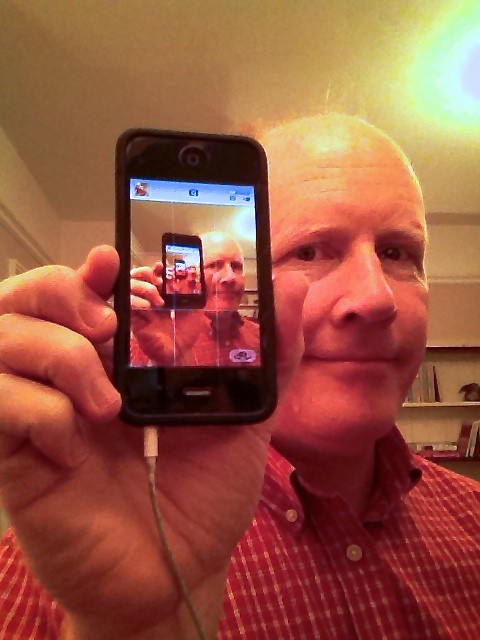Only people who are better skiers than me should really try shooting video while in motion, but it was a nice gentle slope!
However, I did have an interesting and rather embarrassing experience today. We stopped off for lunch at a favourite spot, after which Geoff , the star of the movie, picked up his board, and I my skis, and we set off for another happy afternoon on the slopes.
At the end of the day, Geoff wanted to get his board rewaxed, so we headed down to the rental shop. There was a man waiting outside, who pointed at me.
“Ah! You!”‘, he said. Confused, I tried to work out whether I knew him, or why he might otherwise be accosting me. He soon explained. “You have my skis!”
And I looked at the poles and skis he was holding, and sure enough, they were mine. At lunchtime, he must have placed them on the rack next to Geoff’s board, and yours truly had walked up and pinched both them and his poles (which were, I’m embarrassed to say, completely different from mine), clamped the skis onto my boots (which fit perfectly) and skied for the whole afternoon without noticing. I’m not sure whether the fact that I was so oblivious to my equipment means I’m a good or bad skier…
Anyway, the poor chap, a very nice Dutchman, had waited for about an hour for me to come back and then, having called ahead, had availed himself of my equipment to ski over to the rental shop marked on the skis, which was where we found him waiting. I wonder how long it would have taken us to notice if we hadn’t decided to drop in on the way back…
The moral of this story is probably that ski-hire places should always get the mobile number of the people who rent their equipment. Or that they shouldn’t lend them to people as foolish as me.




Recent Comments